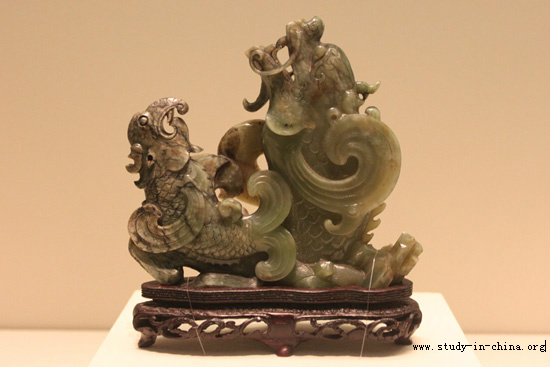| Home > China Feature |
Rejecting Confucius Institutes not helpful to understand China
Nobody expected the Confucius Institutes (CI) to grow so rapidly when it first opened a campus in Seoul in 2004. Today, it has 465 institutes in 123 countries and regions and another 713 Confucius Classrooms operating in middle and primary schools worldwide.
But criticisms and calls to ban the spread of the institutes haven't stopped.
Without doubt, CI has its problems, in management style, hiring methods or quality of its teachers. But such problems are inevitable considering its rapid expansion and can be rectified. None have problems so serious to justify the call by some to reject CI completely.
CI has just entered its 10th year. Compared with its counterparts such as Goethe Institute, which was established in 1951 and the British Council, which was founded in 1934, CI is still in its infancy.
Faced with the popularity of the Chinese culture and Chinese language study, the critics chose to ignore the true reasons behind the rapid expansion of CI -- it well served people's needs to learn Chinese language and Chinese culture.
A glimpse into many English-speaking websites shows the scarcity of information many foreign people know about China, a country which only gained the world spotlight in recent years.
It is not uncommon to come across websites with quiz titles asking "How much do you know about China other than the Great Wall and pandas?" In many ways, CI is a bridge to help Chinese people and foreigners know more about each other. It is no more different than the Goethe Institute, the British Council and the French Alliance.
"Confucius Institutes belong to China and the world as well," Chinese President Xi Jinping said in a recent speech commemorating Confucius' birthday.
He urged promotion of civilization among mankind to improve people's heart-to-heart communication.
"Harmony is the most valuable of all things," the great Chinese sage Confucius said more than two thousand years ago. In choosing Confucius as the name of an organization promoting the study of Chinese language abroad and international cultural exchange and relations, China wanted it to become a platform that can transcend ideology, social system differences and misunderstanding.
Rather, some people in the West are turning it into a politically-charged tool to defame and smear China's goodwill to communicate with the outside world.
Recently, the University of Chicago announced it had suspend negotiations to renew its agreement to host a Confucius Institute, meaning Chinese language study in the university would cease soon.
Though the university did not detail the reasons behind the suspension, many believed it was linked to the American Association of University Professors boycott of CI.
By shutting the door of a Confucius Institute, the University of Chicago not only denied students an opportunity to learn Chinese and Chinese culture, but also a channel to reduce misunderstandings.
Art
 more
moreChina Beijing International Diet ...
Recently, The hit CCTV documentary, A Bite of China, shown at 10:40 ...

Exhibition of Ancient Chinese Jad...
At least 8,000 years ago, Chinese ancestors discovered a beautiful...

Longmen Grottoes
The Longmen Grottoes, located near Luoyang, Henan Province, are a tr...

Custom
 more
moreWeb Dictionary
Martial Arts
Tai Chi Master Class Held in Moscow
MOSCOW, June 15, 2016 (Xinhua) -- Students learn from Shaolin ...
Celebriting 70 years' efforts in restoring Mogao...
Work is being carried out at the restoration site of cave No 98 a...
Hong Kong Children's Symphony performs in Seattle
Under the theme of Tribute to the Golden Age, a concert featuring a ...





 print
print  email
email  Favorite
Favorite  Transtlate
Transtlate 








